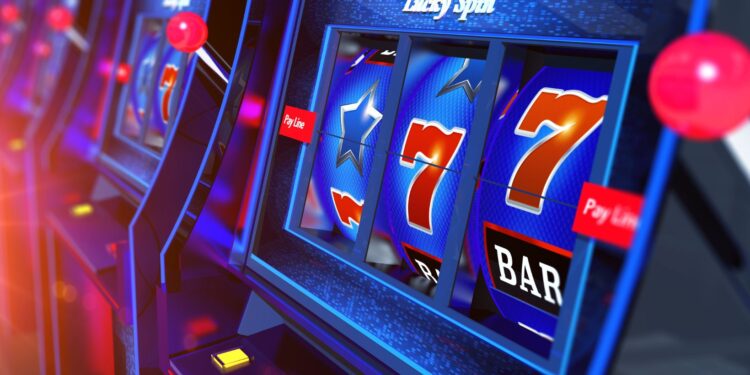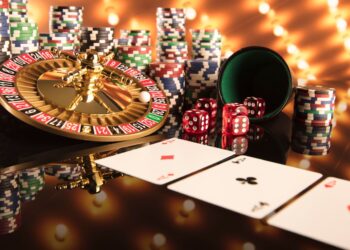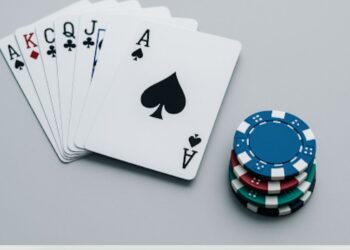Casinos aren’t just for gambling. They are designed to influence how people act. Everything, from the layout to the lights, has a purpose. Even the Classic slots casino games ReviewCasino Canada have their own goals.
The Importance of Casino Layouts
When you’re walking into a casino, the bright lights, lively sounds, and busy atmosphere make it feel like you’re walking into a new world. The design is more than just fun, and everything you see is carefully planned. The layout often looks like a maze. Finding exits or even taking a direct path is difficult, and that’s no accident. It’s a deliberate strategy to keep people inside and engaged.
In most casinos, you won’t find straight, simple walkways. Instead, the routes are winding and lead you past slot machines, gaming tables, and enticing attractions. This design makes it almost impossible to avoid seeing games as you move around. Whenever you’re passing by a game, you’ll most probably be tempted to have a try and play.
The idea is simple: the more you see, the more likely you are to stay and spend. This design makes players stay longer than they planned. Even if you just came in to play one game, the layout pulls you in.
The sights, sounds, and design are all part of the casino’s plan to keep you entertained and spending. It’s not just a building; it’s a place made to keep you engaged from the moment you walk in.
How Lighting Affects Mood
There is no casino with dim lights; bright and colorful lights are what you see. They create excitement and draw attention. Dim lighting elsewhere sets a relaxing tone. Together, these lighting techniques make players feel both thrilled and calm.
The lights are also carefully timed. For example, when someone wins, machines flash and make sounds. This triggers excitement and encourages others to try their luck. Lighting creates an atmosphere that keeps energy levels high.
The Role of Sounds
Casinos are never quiet. The sounds of coins dropping and machines chiming fill the air. This creates a sense of activity and success.

Winning sounds are particularly important. They make players think others are winning, even if the odds are low. The constant noise removes silence, making it harder to think about leaving.
Comfortable but Isolating Spaces
The seating in casinos is deliberately chosen. The chairs are padded and comfortable. They are designed to keep players seated for hours.
At the same time, the space is isolating. Slot machines often have dividers or are spaced out. Privacy is something every player needs and it makes them feel like they’re in their own little world. It reduces distractions and increases focus on the game.
Lack of Clocks and Windows
One of the most well-known tricks is the absence of clocks and windows. Time disappears in a casino. Without clocks, players lose track of how long they’ve been there.
The lack of windows removes natural light. When there are no windows to the outside world, players can’t tell if it’s dark or light outside, which creates a timeless environment. A timeless environment means longer stays and more spending.
Free Drinks and Amenities
When you go to a casino and the bar there offers you a free drink, they are doing it for a good reason. When a person becomes tipsy, they don’t care how much money they are spending. Casinos give free drinks to loosen you up. Alcohol makes you relaxed, happy, and braver, so you might spend more without thinking—until the next day.
Being braver here only means betting higher, amounts that they wouldn’t have bet without the tipsiness. That’s why casinos give free drinks to encourage players to bet more. This helps the casino make more money. So, while the free drinks seem nice, they are really a way to keep players playing and spending more.
Some casinos also offer free snacks or other perks. These small comforts make players feel valued. It creates a positive association, encouraging them to stay longer.
Strategic Placement of Games
High-traffic areas in casinos are filled with enticing games. Slot machines with big jackpots are often near entrances. This draws players in immediately.
Meanwhile, tables with high stakes are often placed in the center. These are surrounded by other games to create a sense of energy and excitement. The placement of games is strategic, encouraging exploration and spontaneous bets.
Colors That Encourage Play
Color psychology plays a big role in casino design. Warm colors like red and gold are common. They create feelings of excitement and energy.
Blue and green tones are used in areas meant for relaxation. These colors make people feel calm and comfortable. By using colors strategically, casinos influence how players feel and behave.
Loyalty Programs and Incentives
Casinos use loyalty programs to keep players coming back. Points earned from playing can be exchanged for rewards. This creates a sense of achievement.
The psychology behind this is simple. Players feel they are getting something in return for their money. Even when losing, the thought of rewards keeps them engaged.
The Science of Smell
Some casinos even use scents to influence behavior. Specific smells can make players feel relaxed or excited. For example, citrus scents are energizing, while lavender is calming.

A pleasant-smelling environment makes players more likely to stay. Scents are subtle but powerful in shaping mood and decisions.
The Impact of Open Spaces
Large, open spaces give a sense of grandeur. This is why many casinos have high ceilings and open floor plans. It creates a feeling of abundance and freedom.
This feeling encourages players to take bigger risks. At the same time, the open layout lets players see others winning. This builds excitement and motivates more gambling.
Combining Psychology for Maximum Impact
All these elements work together. From the lights to the sounds, each detail enhances the experience. Players feel a mix of comfort, excitement, and reward. As a result, when casinos use psychological tricks, they end up creating a space that encourages people to place bets. It’s a carefully established experience that is designed to maximize the time and spending of people.




















